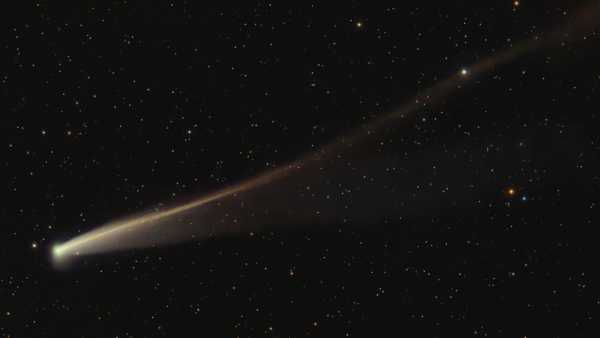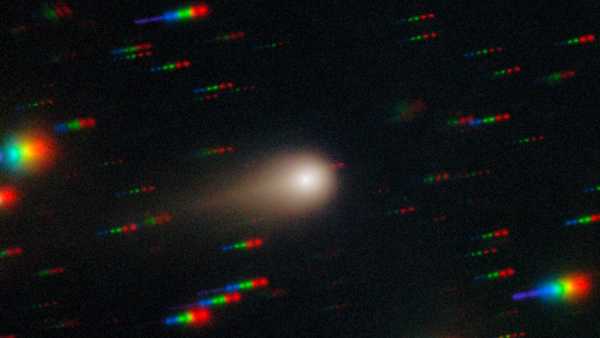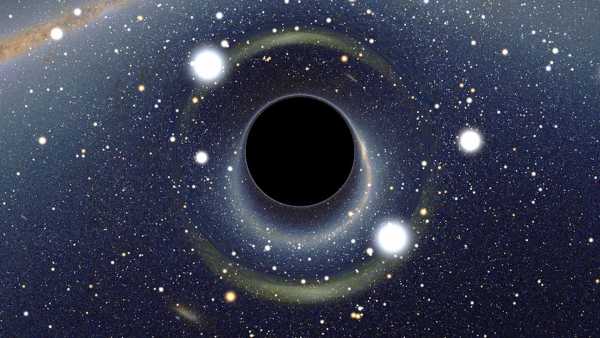
Simulation of a black hole in front of the Large Magellanic Cloud. (Image credit: Alain R, CC BY-SA 2.5)
Stellar black holes form when massive stars, typically between 3 and 50 solar masses, collapse at the end of their lives. When a star runs out of fuel, it explodes as a supernova, leaving behind a region so dense that nothing, not even light, can escape.
Primordial black holes, by contrast, are theoretical objects that could have formed less than a second after the Big Bang from extremely dense regions of the early universe. Unlike stellar black holes, they may be much lighter and represent ancient relics from a time when the universe consisted primarily of hydrogen and helium.
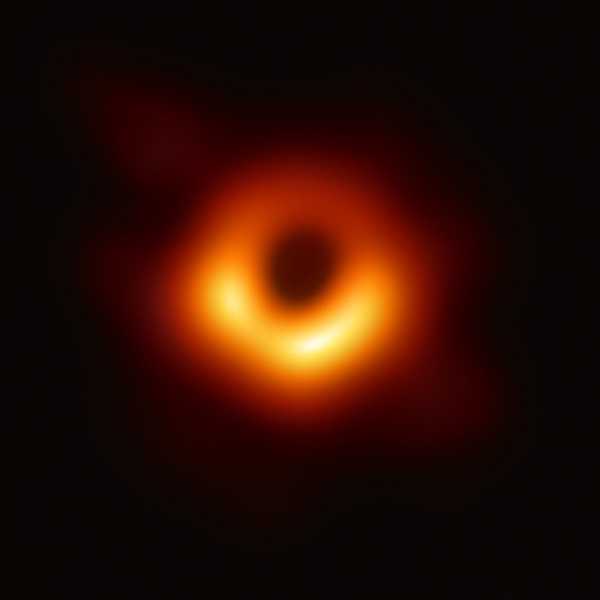
An image of the central region of the galaxy Messier 87, home to a supermassive black hole, taken using a rare array of radio telescopes known as the Event Horizon Telescope.
Although black holes are generally known to devour everything around them, physicists have long suspected that they explode at the end of their lives in a process called Hawking radiation. Previously, scientists believed that such explosions only occur once every 100,000 years. However, a new study published in the journal Physical Review Letters suggests that we may witness this unusual phenomenon much sooner than expected.
You may like
-
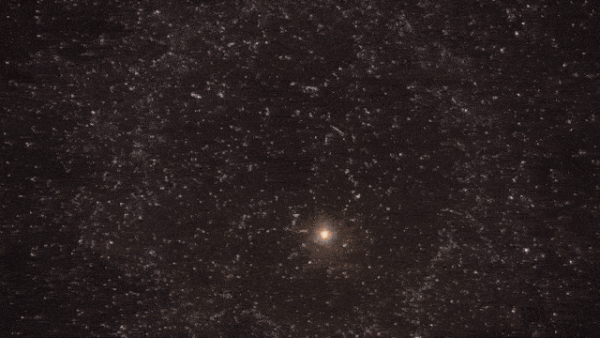
Watch the rarest type of black hole in the Universe swallow a star in a stunning animation.
-
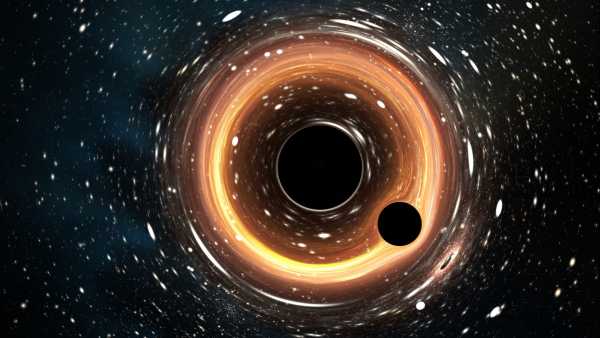
Scientists use Stephen Hawking's theory to propose “black hole chunks” – strange compact objects that could reveal new physics
-
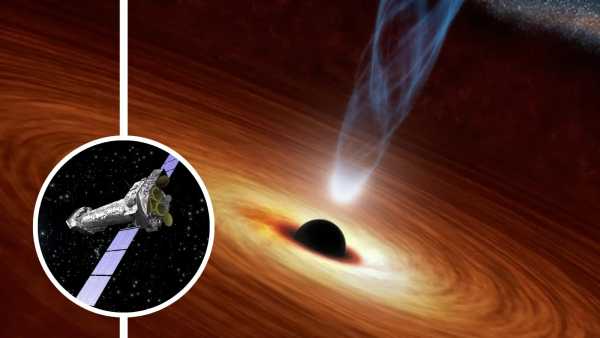
This supermassive black hole is consuming too quickly and is burping out at near-light speeds.
“We believe the probability of witnessing an exploding black hole within the next 10 years is 90%. The key is that our current fleet of space-based and ground-based telescopes is already capable of detecting such an explosion,” said Aidan Simons, a graduate student at the University of Massachusetts.
The black holes most likely to explode are not the massive stellar remnants we typically think of, but primordial black holes (PBHs). As physicist Stephen Hawking demonstrated in 1970, the lighter a black hole is, the hotter it is and the more particles it emits via Hawking radiation. As PBHs evaporate, they become increasingly lighter and therefore hotter, emitting ever more radiation in a runaway process that continues until they explode.
The breakthrough came when a group of researchers began challenging established ideas about the electrical properties of black holes. Although standard black holes have no electrical charge, the team investigated what might have happened if primordial black holes had formed with a tiny electrical charge, including hypothetical heavy particles they called “dark electrons.”
A dark electron would be like a much heavier version of a regular electron, but would interact via dark electromagnetic forces instead of conventional electromagnetism. In theoretical models called dark quantum electrodynamics (DQED), these particles would carry dark electric charge and interact via dark photons, potentially influencing the behavior of matter around black holes.
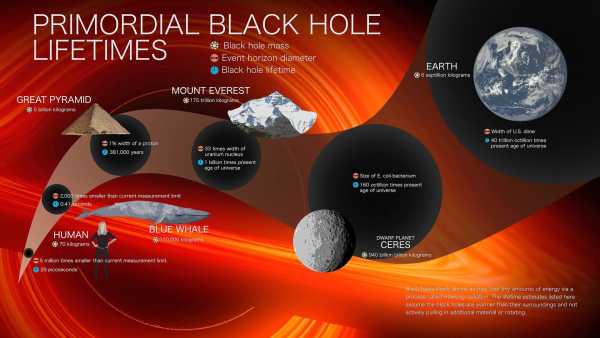
The research team put forward a different hypothesis about the electrical properties of primordial black holes. They postulate that their model shows that if a primordial black hole forms with a small dark electric charge, it should temporarily stabilize before its final explosion. This stabilization effect could significantly increase the probability of observing such explosions—from once every 100,000 years to potentially once every decade.
RELATED STORIES
— A colossal black hole, with a mass 36 billion times greater than that of our Sun, is one of the largest ever observed in the Universe.
Astronomers have accidentally used a rare “double zoom” technique to view a black hole's corona in unprecedented detail.
Stephen Hawking's long-disputed theory of black holes has finally been confirmed – scientists “hear” two event horizons merging into one
A black hole explosion would not only be a spectacular light show, but would also provide scientists with a catalog of all existing subatomic particles. This includes not only already-discovered particles such as electrons, quarks, and Higgs bosons, but also those yet to be discovered, perhaps even dark matter.
The team insists that while they can't guarantee the explosion will occur this decade, the high probability means we should be prepared. Fortunately, our modern telescopes are already capable of detecting clear signs of Hawking radiation from an exploding primordial black hole. If their calculations are correct, we might be able to shed light on one of our longest-standing questions: where did it all come from?!
The original version of this article was published in Universe Today magazine.
Mark ThompsonDiscovery News
You must verify your public display name before commenting.
Please log out and log back in. You will then be asked to enter a display name.
Exit Read more
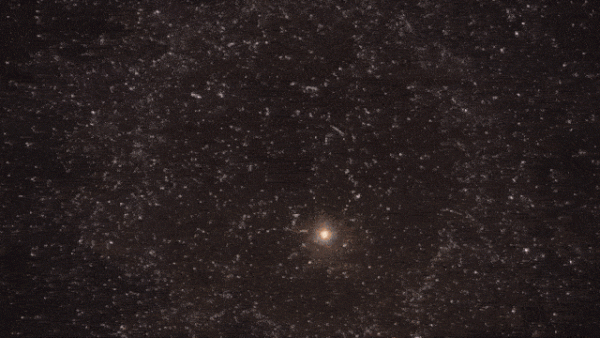
Watch the rarest type of black hole in the Universe swallow a star in a stunning animation.
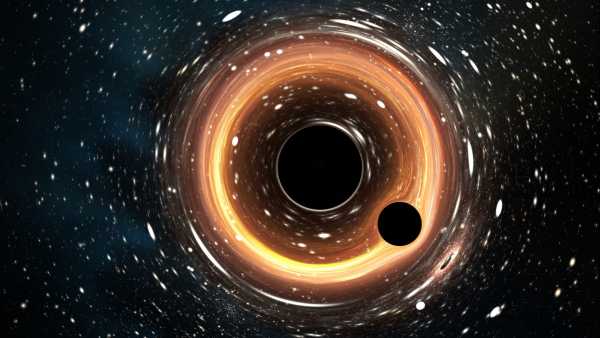
Scientists use Stephen Hawking's theory to propose “black hole chunks” – strange compact objects that could reveal new physics
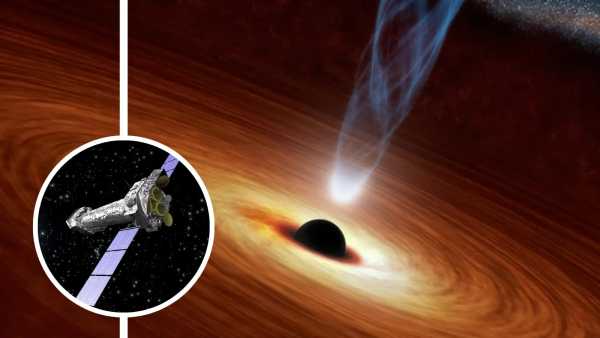
This supermassive black hole is consuming too quickly and is burping out at near-light speeds.
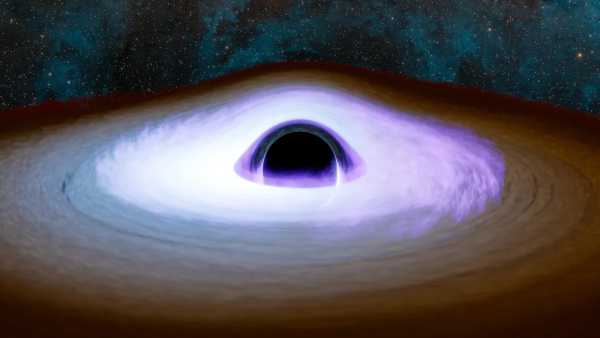
X-ray telescope finds something unexpected in the 'heartbeat of a black hole'
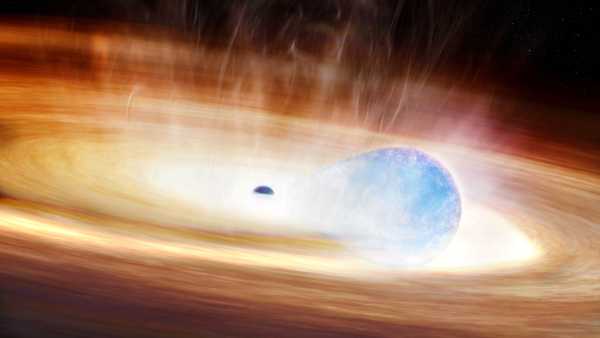
Spotify-like AI has helped discover a never-before-seen supernova as a greedy star tries to swallow a black hole.
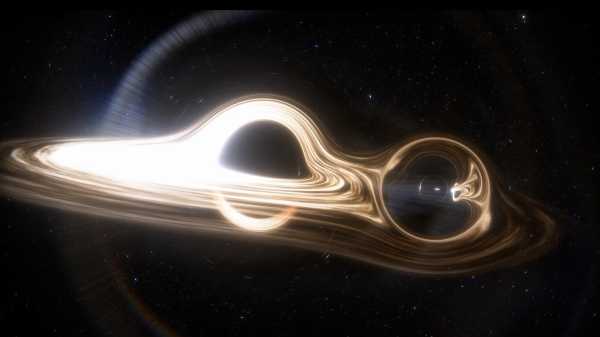
Scientists have recorded the most massive black hole merger in history—and it created a monster 225 times more massive than the Sun.
Latest news about black holes
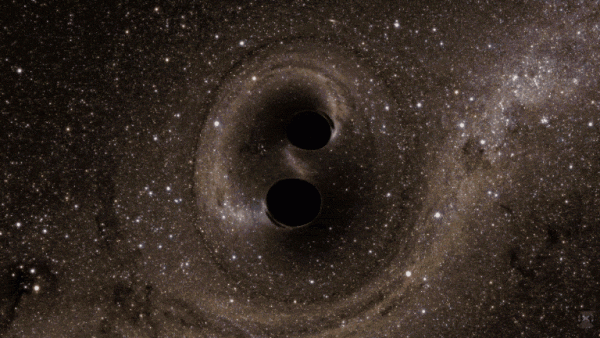
Scientists have measured for the first time the “birth shock” that sent a small black hole into space.
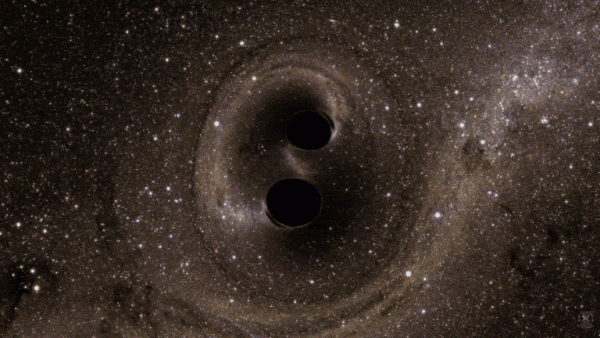
History of Science: Gravitational Waves Discovered, Proving Einstein Right – September 14, 2015
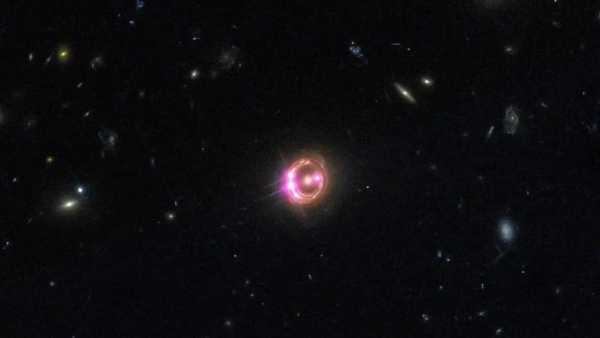
Astronomers use rare 'double zoom' to view black hole's corona in unprecedented detail
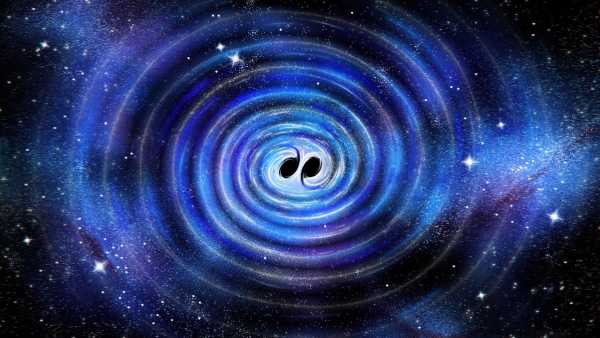
Confirmed! The merger of black holes confirms the correctness of Stephen Hawking's theory.
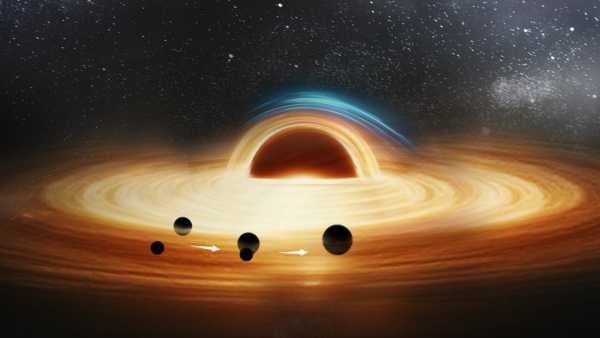
Scientists believe they have discovered the first known triple black hole system in the Universe and then watched it die.
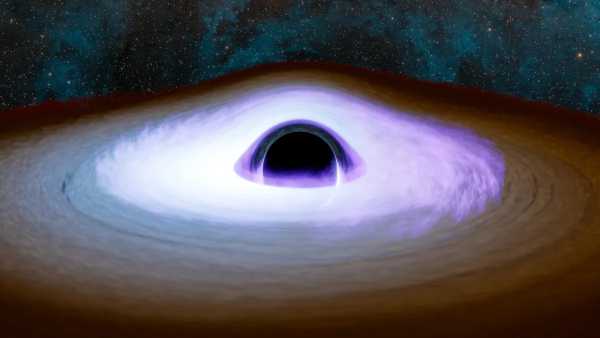
X-ray telescope finds something unexpected in the 'heartbeat of a black hole'
Latest news

Robert Kennedy's hand-picked advisers will be arriving to discuss the childhood vaccination schedule. Here's what you need to know.

'It's impossible to put the genie back in the bottle': Readers believe it's too late to stop the development of artificial intelligence
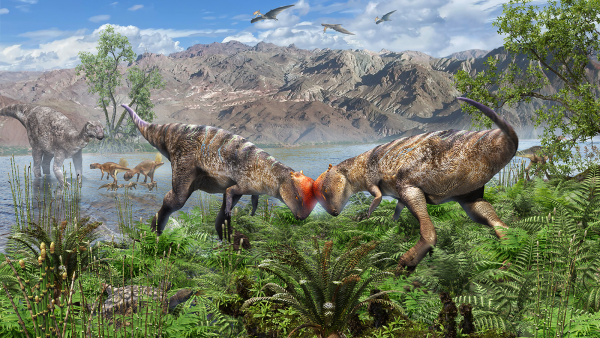
The oldest known dinosaur with a domed head has been discovered protruding from a rock in Mongolia's Gobi Desert.

A 'rare' ancestor reveals how giant flightless birds reached distant lands.
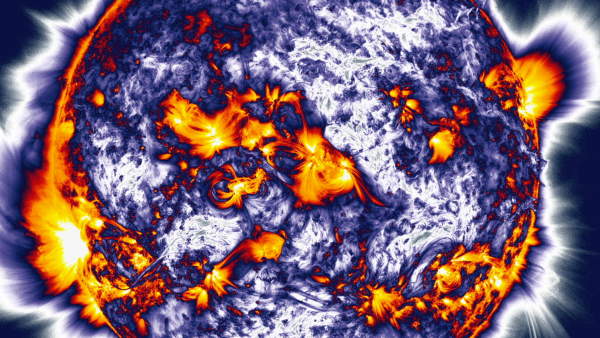
'The Sun is slowly waking up': NASA warns that extreme space weather could become even more extreme in the coming decades

Scientists have invented a new sunscreen made from pollen.
LATEST ARTICLES

1″It's impossible to put the genie back in the bottle”: Readers believe it's too late to stop the development of artificial intelligence.
Live Science magazine is part of Future US Inc., an international media group and leading digital publisher. Visit our corporate website.
- About Us
- Contact Future experts
- Terms and Conditions
- Privacy Policy
- Cookie Policy
- Accessibility Statement
- Advertise with us
- Web notifications
- Career
- Editorial standards
- How to present history to us
© Future US, Inc. Full 7th Floor, 130 West 42nd Street, New York, NY 10036.
var dfp_config = { “site_platform”: “vanilla”, “keywords”: “type-crosspost,type-news-daily,serversidehawk,videoarticle,van-enable-adviser-
Sourse: www.livescience.com



